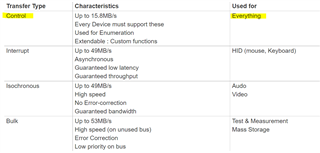Hello, I need to create a USB vendor specific device communicating only via a control endpoint 0. No additional endpoints should be defined and used. Is this possible? How can I handle callbacks?
-
Ask a related question
What is a related question?A related question is a question created from another question. When the related question is created, it will be automatically linked to the original question.


